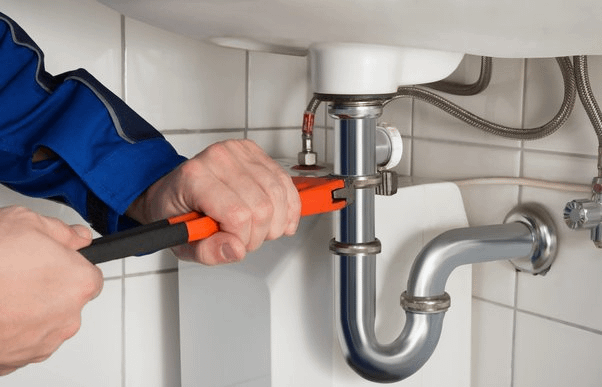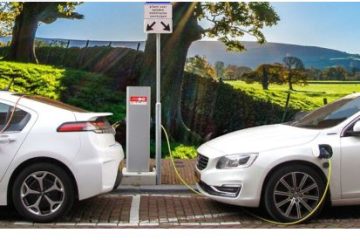Introduction
Regular plumbing maintenance is often overlooked by many homeowners until a major problem arises. However, proactive maintenance can prevent costly repairs, enhance the efficiency of plumbing systems, and ensure the health and safety of a home. Plumbing systems are complex networks that require consistent attention to function optimally. Ignoring minor issues can lead to significant problems, including water damage, mold growth, and expensive emergency repairs. This article delves into the importance of regular plumbing maintenance, providing insights into common plumbing issues, preventive measures, and the benefits of professional plumbing services.
Common Plumbing Issues and How Regular Maintenance Prevents Them
- Leaks and Drips
One of the most common plumbing problems is leaks. Whether it’s a dripping faucet or a leaking pipe, these issues can lead to significant water wastage and increased utility bills. Regular maintenance involves checking all faucets, pipes, and fixtures for signs of leaks. Early detection and repair can prevent further damage and save water. - Clogged Drains and Sewer Lines
Clogged drains and sewer lines are not only inconvenient but can also lead to unsanitary conditions. Regular plumbing maintenance includes inspecting and cleaning drains and sewer lines to remove built-up debris, grease, and other obstructions. This proactive approach prevents blockages and ensures the smooth flow of wastewater. - Water Heater Problems
Water heaters are essential for daily comfort, but they can develop issues over time, such as sediment buildup, thermostat malfunctions, and corrosion. Routine maintenance involves flushing the water heater tank, checking the anode rod, and inspecting the thermostat. These steps help extend the lifespan of the water heater and ensure consistent hot water supply. - Low Water Pressure
Low water pressure can be caused by various factors, including mineral buildup in pipes, leaks, or issues with the municipal water supply. Regular maintenance helps identify the root cause of low water pressure and address it promptly. Cleaning or replacing aerators and pressure regulators can restore optimal water pressure. - Running Toilets
A running toilet is not only annoying but can also waste a significant amount of water. Regular plumbing maintenance involves checking the toilet’s components, such as the flapper, fill valve, and float, to ensure they are functioning correctly. Replacing worn-out parts can stop the toilet from running and conserve water.
Tips for Maintaining Plumbing Systems
- Inspect and Clean Drains Regularly
One of the simplest ways to maintain your plumbing system is to regularly inspect and clean your drains. Use a mixture of vinegar and baking soda to clean drains naturally and avoid chemical drain cleaners that can damage pipes. Installing drain screens can also help catch debris and prevent clogs. - Check for Leaks
Periodically check all faucets, showerheads, and pipes for leaks. Look for water stains on ceilings, walls, and floors, which can indicate hidden leaks. Addressing leaks promptly can prevent water damage and mold growth. - Maintain Your Water Heater
Drain and flush your water heater at least once a year to remove sediment buildup. Check the anode rod annually and replace it if necessary. Adjust the thermostat to a safe temperature to prevent scalding and reduce energy consumption. - Monitor Water Pressure
Keep an eye on your home’s water pressure. High water pressure can stress pipes and fixtures, leading to leaks and bursts. Install a pressure regulator to maintain optimal water pressure and protect your plumbing system. - Be Mindful of What You Flush
Only flush toilet paper and human waste down the toilet. Avoid flushing items like wet wipes, feminine hygiene products, and paper towels, as they can cause clogs and damage sewer lines. - Schedule Professional Inspections
Regular professional inspections are crucial for comprehensive plumbing maintenance. A professional plumber can identify potential issues that may not be visible to the untrained eye and provide expert solutions.
Signs That Indicate the Need for Professional Plumbing Services
- Persistent Clogs
If you experience frequent clogs in your sinks, showers, or toilets, it may indicate a deeper issue within your plumbing system. Professional plumbers have the tools and expertise to diagnose and resolve persistent clogs effectively. - Slow Drains
Slow-draining water is a common sign of a blockage in the pipes. While minor clogs can often be cleared with a plunger, persistent slow drains require professional attention to prevent further complications. - Unpleasant Odors
Foul odors emanating from your drains or sewer lines can indicate a blockage or a more serious issue such as a sewer line break. Professional plumbers can identify the source of the odor and take appropriate action to resolve it. - Water Stains and Dampness
Water stains on walls, ceilings, or floors, as well as unexplained dampness, can be signs of hidden leaks. Professional plumbers can use advanced leak detection tools to locate and repair hidden leaks, preventing water damage and mold growth. - Noisy Pipes
Banging, clanking, or whistling sounds from your pipes can indicate issues such as water hammer, loose pipes, or high water pressure. A professional plumber can diagnose the cause of the noise and recommend solutions to prevent damage to your plumbing system. - Sudden Increase in Water Bills
An unexplained spike in your water bill can indicate a hidden leak or other issues within your plumbing system. A professional plumber can conduct a thorough inspection to identify and repair the problem, helping you save on water costs.
Conclusion
Regular plumbing maintenance is essential for the longevity and efficiency of your home’s plumbing system. By addressing minor issues before they escalate, homeowners can avoid costly repairs, ensure the health and safety of their household, and maintain the overall value of their property. Regular inspections, preventive measures, and professional plumbing services McKinney are key components of a comprehensive plumbing maintenance strategy. Investing time and resources into maintaining your plumbing system will pay off in the long run, providing peace of mind and a well-functioning home. In addition, proactive maintenance contributes to environmental sustainability by reducing water wastage and improving the efficiency of water usage in the household, ultimately leading to lower utility bills and a reduced carbon footprint. Furthermore, a well-maintained plumbing system enhances the overall comfort and convenience of daily life, ensuring that essential functions such as clean water supply and efficient waste removal are consistently reliable and trouble-free.



